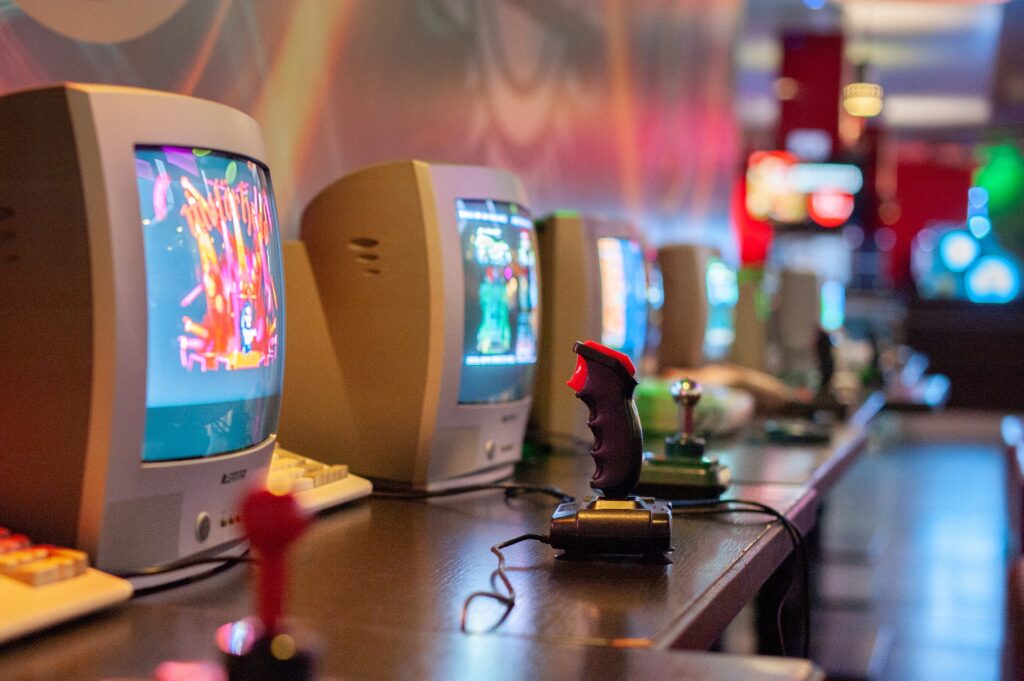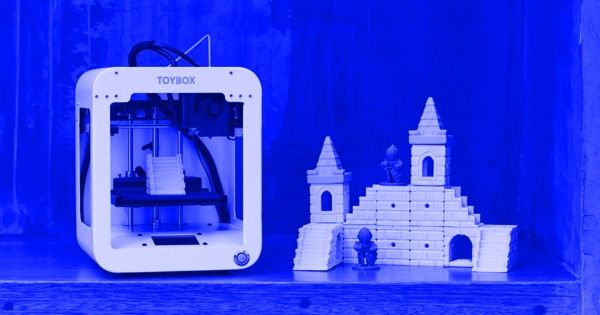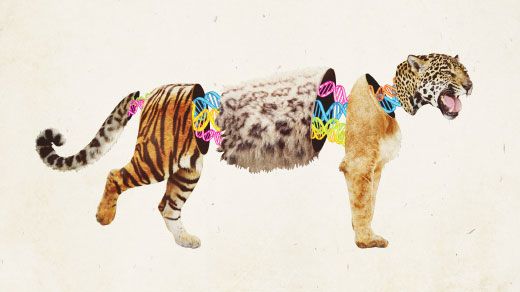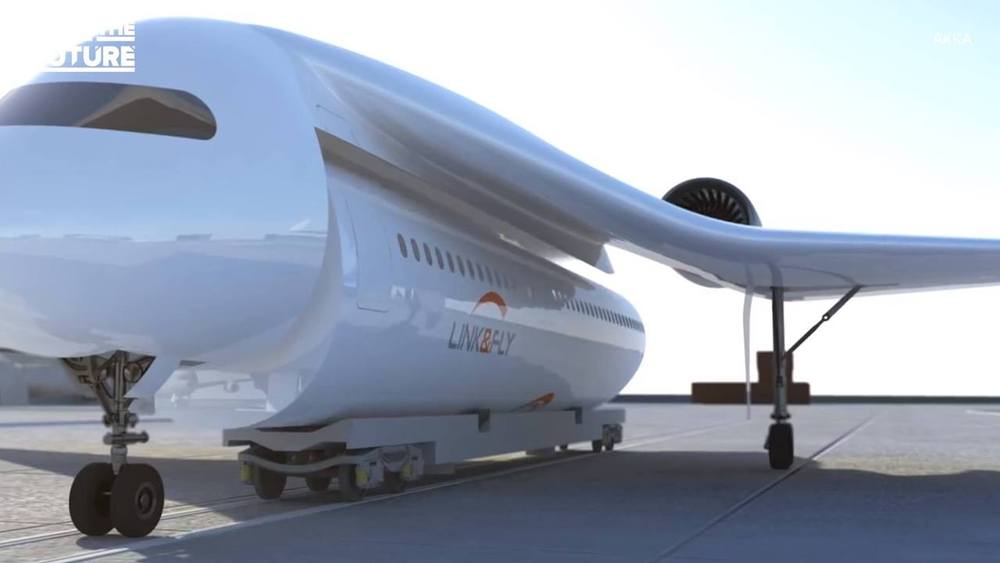Page 7582
Jul 17, 2019
The Toybox 3D Printer Deluxe Bundle Lets Kids Print Their Own Toys
Posted by Genevieve Klien in category: 3D printing
Jul 17, 2019
Interspecies Hybrids Play a Vital Role in Evolution
Posted by Genevieve Klien in categories: biological, evolution
Hybrids, once treated as biological misfits, have been the secret saviors of many animal species in trouble. Reconciling that truth with conservation policies poses a challenge for science.
Jul 17, 2019
This toaster-inspired space-saving dishwasher pops out clean dishes in a jiffy
Posted by Genevieve Klien in categories: habitats, space
 The Dishwasher. The must-have kitchen appliance for the time-conscious and lazy home-occupiers alike. However, justifying the loss of valuable space and the increase in water-bill that comes with them is sometimes a little tricky… especially when you live in a place that is on the smaller side! This was the motive that led to the creation of Toasher, the portable dishwasher for limited living spaces.
The Dishwasher. The must-have kitchen appliance for the time-conscious and lazy home-occupiers alike. However, justifying the loss of valuable space and the increase in water-bill that comes with them is sometimes a little tricky… especially when you live in a place that is on the smaller side! This was the motive that led to the creation of Toasher, the portable dishwasher for limited living spaces.
Toasher utilizes a method of interaction that has been lifted from another kitchen appliance, the toaster. The dirty items are lowered into the stainless steel tank, where an ultrasonic transducer agitates the dirt and separates it from the dishes. Add-ons elevate Toasher’s functionality even further; with the modular peg-board that can be attached to the rear of the unit, to expanding the amount of storage that it can hold and allowing it to be used as an item of furniture as well as just a kitchen appliance!
Designer: Lin Shuo De
Jul 17, 2019
Eight Ways AI Could Impact the Future of Electronic Gaming and Online Gambling
Posted by Alexandra Whittington in category: robotics/AI

How might the application of artificial intelligence enhance the experience and reach of electronic gaming and gambling?
Over the next few years, the internet gaming business could be transformed completely as artificial intelligence (AI) enters the scene. At its core, AI is a type software or hardware that learns—and it could be programmed to learn mostly about us, its users and those insights could drive the developments of new, hyper-personalised gaming and internet betting experiences. The technology is being applied to learn our habits, our likes, and our relationship patterns. Just as Netflix uses an algorithm to suggest films you might watch, the concept of personalisation is extending to the idea of “Lifestyle AI” applications that could help choose your entertainment, gaming choices, wardrobe, your next meal, your job, and romantic partner. Take this one natural step further, and we enter the domain of mass tailoring of gaming and betting experiences.
While it all sounds a bit like science fiction, the capabilities of AI tools and the range of applications are growing exponentially. Indeed, by 2020 AI could be present in some form in everything we do, and by 2030, AI is likely to have infiltrated our lives in much the same way as smartphones, the internet, and global travel are now taken for granted. So how might AI change our recreational habits and day-to-day existence in a way that might affect e-gaming? Here are eight novel ways internet betting could be different in future as a result of AI.
- Trend Betting – Individuals could bet on the word, phrase, issue, or concept that will be mentioned most across a range of sites on the web during a fixed period, and then AI web crawlers would determine the actual count. Machine learning would be used to profile these trends and patterns over time, predict the likelihood and frequency of occurrence of key terms, and then determine the odds accordingly. Users could volunteer their own terms alongside those which the gambling sites suggest. To determine the initial odds for new terms, machine learning would compare the new term to others it has already analysed, and search the internet to see how frequently it is mentioned. The algorithm would then set the initial odds and refine them over time in response to actual betting patterns and payouts.
- Campaign Betting – Companies could hedge the costs of their marketing campaigns by betting on their success. Machine learning algorithms could evaluate a campaign, compare keywords and phrases in the material against past campaigns, and then determine the odds accordingly. The company placing the wager could then bet on achieving or not achieving a certain target number of hits.
- Next Generation Sports Betting – A combination of wearables and implantables tracking vital signs could be worn by sportspeople. Bets could then be placed on the aggregate performance of a team in a game—average heart rate, total calorie consumption, median oxygen intake, etc. The AI system would crunch the numbers in real time and generate minute by minute predictions of the likely outcomes for the rest of the event. Gamblers would be able to jump in at any time to bet on the likely outcome. The odds would be generated by applying machine learning algorithms to analyse the vast amounts of data generated from previous games.
- Betting on Your Life – With AI, any scenario could turn into a betting opportunity. What are the chances that you would run into a friend at the grocery store? Find a lucky penny? Get a call from your parents? Enjoy your date? Go and see a movie? Be fired by your boss tomorrow? In a form of crowdsourced betting system, if you find enough people to bet on your life events then you could give it a go. Even individuals’ lives could be ranked according to their predictability or spontaneity. The algorithm would do a detailed comparison of your social media profiles and other web postings and data against its databank to determine the odds and change them dynamically as the bets roll in.
- Beat the Bookies – With the analytical capability of AI, an independently developed ‘Beat the Bookie’ app could look at all the variables associated with a sports event. The app might factor in player performance statistics, player behaviour information, weather, previous fixtures, key match events, and create a ‘best bet’ opportunity for the gambler from across all available betting sites. An interesting question arises over how long it would be before the bookmakers develop a counter to the app or a more sophisticated basis for gambling.
Jul 17, 2019
Space Scientists Share Childhood Memories Of Moon Landing
Posted by Bill Retherford in category: space
Jul 17, 2019
Is there an upper limit to WiFi speed?
Posted by Philip Raymond in categories: computing, internet
As with many of my recent posts, this was originally a reply to a member of Quora, a Q&A web forum. But, it fits within Lifeboat’s educational mission and our fascination to push the limits of creativity and tech.
Is there a theoretical speed limit to WiFi devices over the next 10 years?
Because of four recent practices,* it is difficult to predict an upper limit for future overall throughput:
- Channel bonding
- Beam steering (MIMO shaping and directing the antenna pattern)
- Mesh Networking (i.e. subdividing a service area into micro-cells). Residential examples: Google WiFi, Netgear Orbi or TP-Link Deco
- Ultra wideband or Ultra-high frequency: In 2017, both Netgear and Asus introduced routers with 802.11ad WiFi (‘WiFi AD’). Although it still not widely adopted, it adds a 60 GHz radio to the existing 2.4 and 5 GHz radios, supporting 7 Gbps network speed).

Note that none of these techniques demands a high output power per channel. They all use ‘tricks’ to achieve higher speeds. But the tricks are scaleable. There really is no upper limit to any of these techniques.
Jul 17, 2019
Regenerative Ecology — Scott Quitel, Founder, LandHealth Institute- ideaXme — Ira Pastor
Posted by Ira S. Pastor in categories: aging, bees, biological, biotech/medical, complex systems, environmental, geoengineering, health, science, transhumanism















